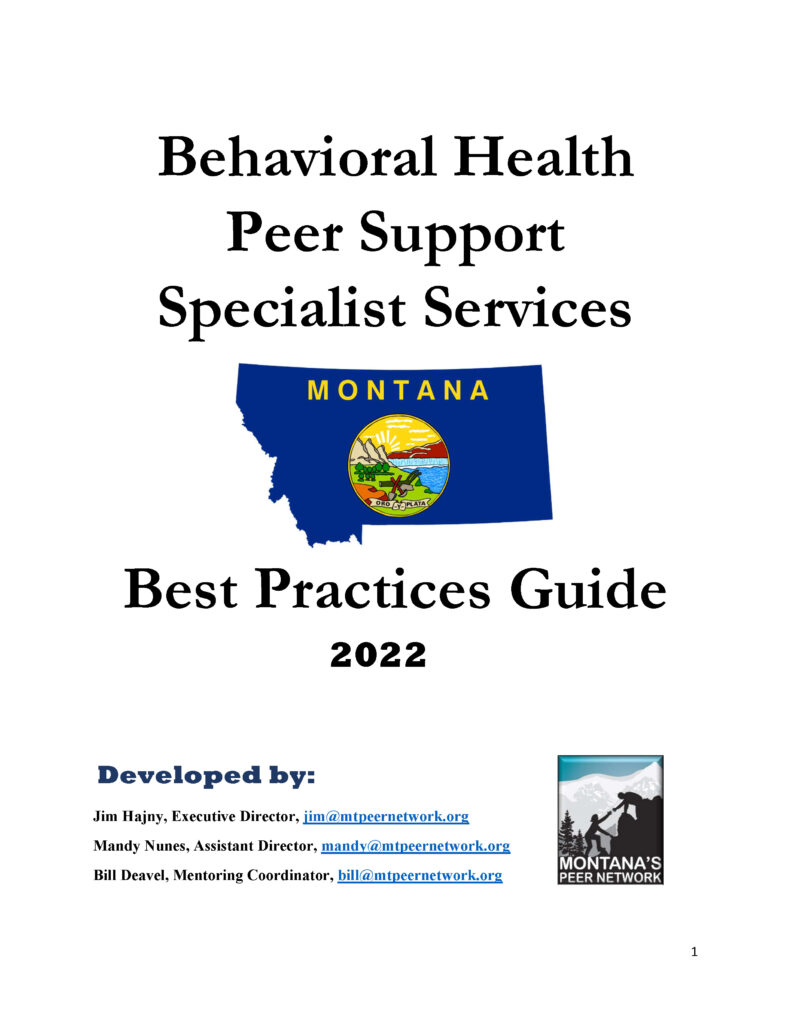by Jim Hajny, Executive Director
May 16, 2023
I hired my first peer supporter in 2009. I currently have 3 CBHPSS and 4 Family Peer Supporters. After 14 years I have learned a few things, but I still find it challenging. Hiring anyone is challenging. Candidates often put on their best self, can embellish their credentials, and say what we want to hear. This provides us with false knowledge about a candidate and ultimately a decision which will cost the organization time, energy and dollars. Hiring the wrong person can lead to hours of retraining, coaching, and documenting an employee who will eventually be let go only to restart the process again. Then there is the shrinking workforce nationally. There simply are not as many people to fill healthcare related jobs. Getting it right the first time is important for any organization. The other challenge with hiring peer supporters is the pool of candidates typically don’t have much professional experience. Most peer support candidates have worked entry level jobs, and gaps in employment. Individuals in recovery may have a decade or more unwell, some have been incarcerated or hospitalized. This isn’t true for everyone, but the vast majority will have a less than ideal work history and therefore I do not focus on the work history. I instead focus on where they are today. Back in 2009 I didn’t really understand these complexities of hiring a peer supporter. I just interviewed candidates and hired one. Today I have a much different approach. I find the job description is vital for gaining clarity.
I start with the requirements for the position such as, the ability to achieve and maintain state certification, required weekly clinical supervision and training specific to the position such as crisis intervention training or trauma informed care. These trainings are continuing education and not part of the 40 hour certification training. These are unique to each position. A peer supporter working in the justice system will need specific justice related training. I always include these requirements in the job description, it also opens the door to interview questions.
In the ad for the position I will say, Please submit resume and cover letter including an explanation as to why you are interested in applying for this position. If I get a generic cover letter, it’s a red flag. I do not offer an interview since they did not follow instructions.
Here are some of the areas I focus on in the interview.
- Two interviews
- The first is about the position itself and answering questions from the candidate about the responsibilities for the position. This is more casual.
- The second are set questions all the candidates get where I try to better understand the candidate and determine their fit for the role.
- Second interview questions -Why do you feel you are qualified for this position?
- This opens the door to recovery questions and their lived experience.
- What are the candidates’ views or beliefs of recovery?
- Please describe what recovery means to you?
- What tools do you utilize when having a bad day?
- What are the candidates’ views of the role of peer support? Do they understand peer supporters don’t diagnose? Peer supporters are not junior counselors. Are they fixed in their thinking about recovery pathways? This is a red flag.
- Do they want to do “for or with” those they serve? Doing for or caretaking is a red flag.
- What types of recovery or peer support training have you attended?

Lastly, I take my time with the entire process. I plan out a month from the time I place the ad, have two rounds of interviews, and make a final decision. If you want to know more about hiring peer supporters, I suggest downloading our Best Practices Guide for Behavioral Health Peer Support Specialists.

